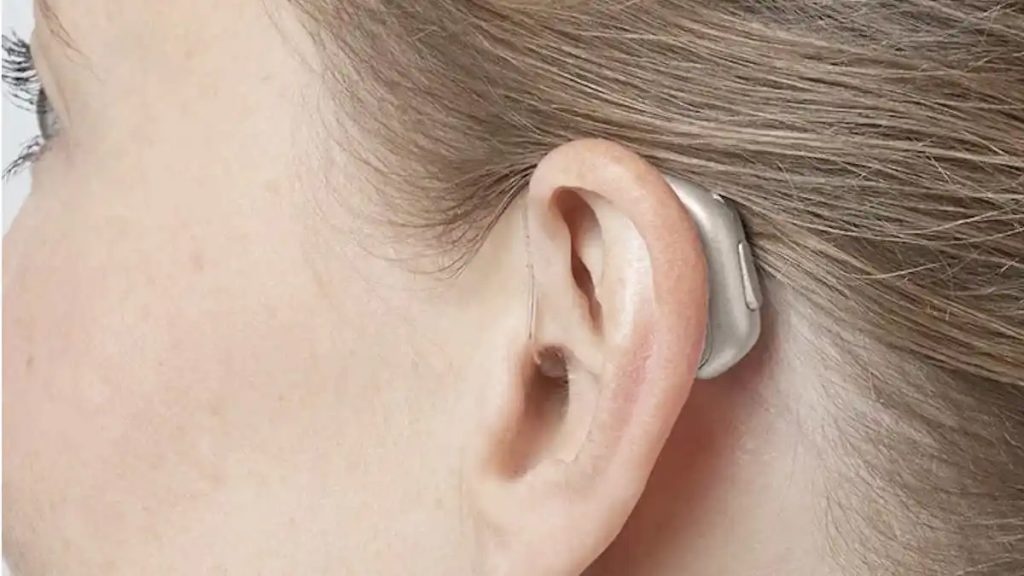
Life becomes richer with the best hearing aid device.
You can make it happen.
What is a Hearing Aid Dispenser?
A hearing aid dispenser license is a credential that authorizes individuals to evaluate, recommend, sell, and maintain hearing aids for people experiencing hearing loss.
A Hearing Aid Dispenser is a state-licensed professional trained and authorized to evaluate hearing loss and sell hearing aids to individuals experiencing hearing difficulties. To earn this license, a candidate must pass both a written and a practical examination administered by the state licensing board. These exams are designed to ensure that dispensers are fully equipped with the knowledge and skills necessary to accurately assess hearing needs, recommend appropriate devices, and provide post-fitting support and care.
While the primary responsibility of a Hearing Aid Dispenser is to sell and fit hearing aids, their role goes far beyond simple sales. They must be able to interpret audiograms (hearing test results), determine the type and degree of hearing loss, and select hearing aids that match the patient’s specific condition, lifestyle, and budget. In addition, dispensers are trained to take impressions of the ear for custom devices, adjust hearing aid settings for optimal performance, educate patients on proper usage and maintenance, and provide ongoing support through follow-up appointments.
Once licensed, a Hearing Aid Dispenser has several career options. They can work under the supervision of an Audiologist, be employed by a hearing aid retailer, or even open their own private dispensing practice. While there are not many formal schools or academic programs dedicated to this profession, many candidates find useful information through online courses, exam preparation guides, and mentorship opportunities with experienced dispensers. Self-study and hands-on training are crucial parts of the learning process.
Despite requiring only a high school diploma to qualify for licensing, the profession is highly specialized and demands a thorough understanding of hearing science, sound amplification, and modern hearing aid technology. Those who succeed in this field often possess strong communication skills, empathy, patience, and a genuine desire to improve the lives of those with hearing challenges. Additionally, Hearing Aid Dispensers must stay updated on rapidly evolving technologies, including wireless connectivity, Bluetooth integration, rechargeable batteries, noise cancellation, and remote programming capabilities.
The licensing process is divided into two stages. First, the candidate must pass a written examination covering theoretical knowledge, ethics, anatomy of the ear, hearing aid electronics, and relevant laws and regulations. Upon passing the written exam, they are eligible to take the practical exam, which tests their ability to handle real-life situations, such as fitting hearing aids, performing hearing tests, and interacting with patients.
Although both Hearing Aid Dispensers and Audiologists are permitted to sell and fit hearing aids, their education and scope of practice differ significantly. Audiologists must earn a master’s or doctoral degree in audiology and are qualified to diagnose a wide range of auditory and balance disorders. In contrast, Dispensers are limited to evaluating hearing aid needs and fitting hearing devices, without the authority to diagnose medical conditions.
It’s important to note that even Audiologists must obtain a Hearing Aid Dispenser license in order to sell and fit hearing aids legally in many states. However, neither profession is permitted to conduct medical or surgical procedures. Conditions such as ear infections, eardrum perforations, or structural abnormalities must be treated by an ENT (Ear, Nose, and Throat) specialist, also known as an Otolaryngologist. Procedures such as tympanoplasty, myringotomy, or the treatment of chronic otitis media are strictly within the medical domain.
From a financial standpoint, the average annual income for Hearing Aid Dispensers and Audiologists is surprisingly similar, even though their educational investments vary. For many, this makes the dispenser career path especially appealing—offering relatively high earning potential without the extensive time and financial commitment required for graduate school. Furthermore, as hearing technology becomes more sophisticated and consumer demand increases, dispensers who keep up with the latest advancements may find themselves in an even stronger market position.
Because Hearing Aid Dispensers are hands-on with hearing aid products daily, they often become highly proficient in the technical aspects of the devices. Their expertise extends to features such as directional microphones, adaptive sound processing, telecoil compatibility, and remote control via smartphone apps. They are also trained to help patients decide between monaural (one ear) and binaural (both ears) fittings, depending on their specific hearing profile.
The hearing healthcare industry is experiencing rapid growth. In fact, hearing loss-related professions were listed among the top 10 growing fields in 2025. This trend is driven largely by the aging population, increased awareness of hearing loss, and improvements in technology that make hearing aids more effective and discreet than ever before. As a result, the demand for knowledgeable, licensed Hearing Aid Dispensers is projected to rise steadily in the coming years.
In summary, a career as a Hearing Aid Dispenser offers a unique blend of healthcare service, technology, and patient care. It can be both personally fulfilling and financially rewarding, especially for those who are passionate about helping others improve their quality of life. With ongoing training and commitment to excellence, dispensers can build long-term careers in a field that is becoming more vital with every passing year.
Thank you for taking the time to read this article. We hope it has helped clarify the important role of Hearing Aid Dispensers in today’s healthcare landscape.

What Are the Benefits of Being a Hearing Aid Dispenser?
Hearing loss affects more than 36 million Americans, and that number continues to rise with our aging population and increased exposure to noise. As the need for hearing healthcare grows, the role of the Hearing Aid Dispenser (HAD) is becoming more vital than ever. This profession offers a unique blend of service, stability, and professional recognition, making it a rewarding and sustainable career both now and in the future.
Rising Demand with Limited Supply
Although hearing-related problems are increasingly common, the number of licensed Hearing Aid Dispensers is steadily declining. This is due in part to the retirement of seasoned professionals and a lack of effective recruitment strategies by government agencies. For example, in large states like California, fewer than 100 new Hearing Aid Dispensers are licensed each year, despite millions of potential patients.
This shortage has created a high-demand, low-supply environment, making it an opportune time to enter the field. Newcomers will find ample job openings, the potential to build long-term client relationships, and even opportunities to open their own practices.
A Professional Career with Purpose
Becoming a Hearing Aid Dispenser is not just about selling devices—it’s about helping people reconnect with their lives, their loved ones, and their confidence. Hearing loss often leads to social withdrawal, low self-esteem, and psychological challenges. As a dispenser, you play a critical role in restoring not only hearing but also emotional well-being and quality of life.
This is a licensed and respected healthcare profession, recognized by state agencies and valued by communities. Many clients refer to their dispenser as their “ear doctor,” a reflection of the deep trust and respect earned through compassionate and competent care.
Accessible to Adults of All Ages and Backgrounds
One of the unique advantages of this profession is its accessibility. Whether you’re a stay-at-home parent, a nurse, a mid-career professional, an early retiree, or a young student, you can become a Hearing Aid Dispenser by passing the required written and practical exams.
In contrast to other healthcare roles where age might limit opportunities, in hearing aid dispensing, age is often seen as a strength. Most clients are seniors themselves, and they tend to feel more comfortable with professionals who are relatable and empathetic. This makes the field inclusive and open to people from diverse life stages and experiences.
Flexible Work, Low Overhead, and Strong Income Potential
From a business and lifestyle perspective, the benefits are equally compelling:
- No physically strenuous labor
- Flexible working hours
- Minimal to no inventory required
- Technology-driven field with constant innovation
- High profit margins for private practice owners
Hearing aid dispensing is one of the few healthcare careers where you can choose between employment in a clinic or the freedom of running your own practice. Either path offers excellent income stability. The average salary for a licensed Hearing Aid Dispenser in the U.S. is around $70,000 per year, while independent business owners often exceed $100,000 annually, depending on their location and client base.
A Long-Term, Meaningful Career
Unlike many short-term or transitional jobs, hearing aid dispensing offers a path to a sustainable and fulfilling lifelong career. The connection between dispensers and clients often grows into long-term relationships, built on trust, empathy, and personalized care. If you genuinely care about your clients, they will return to you again and again—and even refer others.
Because hearing loss is a chronic issue that worsens over time, the ongoing need for support and service makes this a career with long-term relevance and security.
In Conclusion
If you’re someone who finds purpose in helping others, values flexibility and financial stability, and seeks a career with both technical and personal fulfillment, then becoming a Hearing Aid Dispenser may be the perfect path for you.
This field is understaffed but in growing demand, respected in the medical community, and accessible to individuals from many walks of life. With the right preparation and a genuine passion for patient care, you can build a successful and meaningful future in hearing healthcare.
